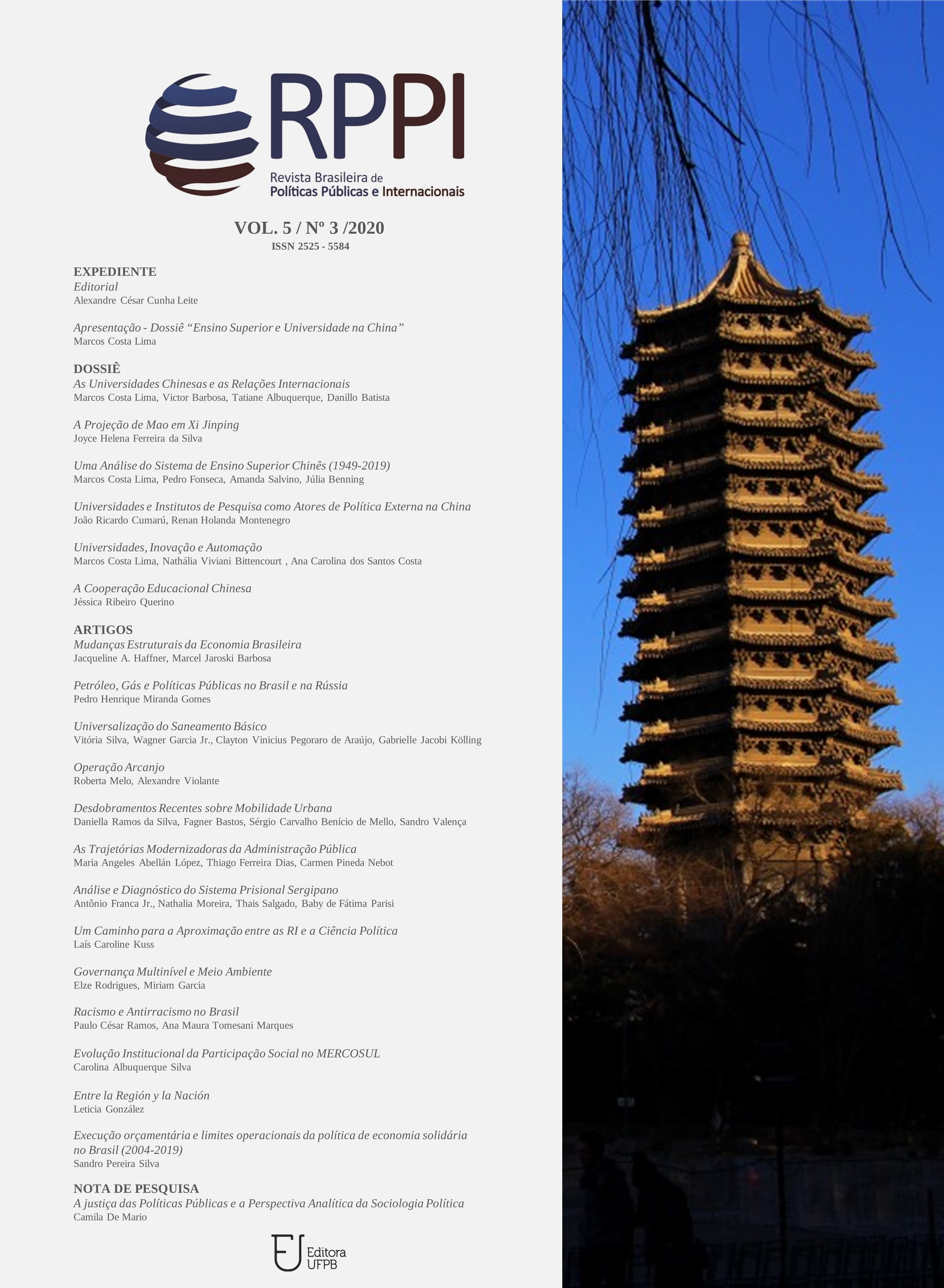Evolução Institucional da Participação Social no MERCOSUL
análise de uma experiência interrompida
DOI:
https://doi.org/10.22478/ufpb.2525-5584.2020v5n3.54047Keywords:
MERCOSUL, Participação Social, Políticas SociaisAbstract
The years 2000-2015 were marked by the engagement of governments and social movements in the regional integration processes in Latin America, particularly in South America, which resulted in initiatives such as ALBA, UNASUL and CELAC. In the case of MERCOSUR, new social and political contents were added to its eminently commercial agenda. This scenario highlighted the debate on the role of civil society in international relations and its access to the decision-making processes related to the regional insertion strategies of its countries. This article aims to contribute to this debate by analyzing the institutional evolution of civil society participation within the structures of MERCOSUR from the theoretical approaches of post-liberal/anti-hegemonic regionalism and the new transnationalism. For this purpose, in addition to making use of the specialized bibliography, a research in the official documents of MERCOSUR was carried out. The article concludes that the prioritization of social and participatory policies is connected to three central factors: the exhaustion of hegemonic neoliberal policies in the 1980-1990s; the rise of left and center-left governments, and the emergence of new social actors on the regional scenario.
Downloads
Published
Issue
Section
License
Autores que publicam nesta revista concordam com os seguintes termos:- Autores mantém os direitos autorais e concedem à revista o direito de primeira publicação, com o trabalho simultaneamente licenciado sob a Licença Creative Commons Attribution que permite o compartilhamento do trabalho com reconhecimento da autoria e publicação inicial nesta revista.
- Autores têm autorização para assumir contratos adicionais separadamente, para distribuição não-exclusiva da versão do trabalho publicada nesta revista (ex.: publicar em repositório institucional ou como capítulo de livro), com reconhecimento de autoria e publicação inicial nesta revista.
- Autores têm permissão e são estimulados a publicar e distribuir seu trabalho online (ex.: em repositórios institucionais ou na sua página pessoal) a qualquer ponto antes ou durante o processo editorial, já que isso pode gerar alterações produtivas, bem como aumentar o impacto e a citação do trabalho publicado (Veja O Efeito do Acesso Livre).




_.jpg)






.png)


.jpg)
_.png)
